Jenalea Rajab
The Esethu Framework: Reimagining Sustainable Dataset Governance and Curation for Low-Resource Languages
Feb 21, 2025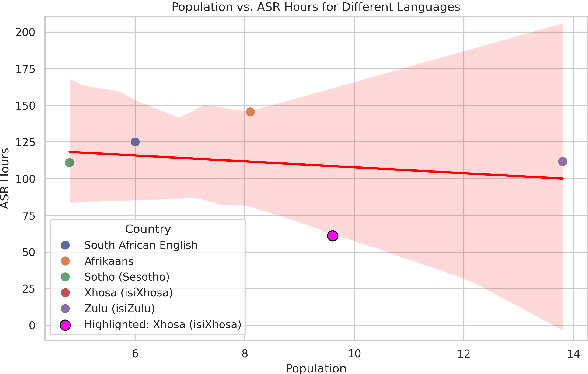

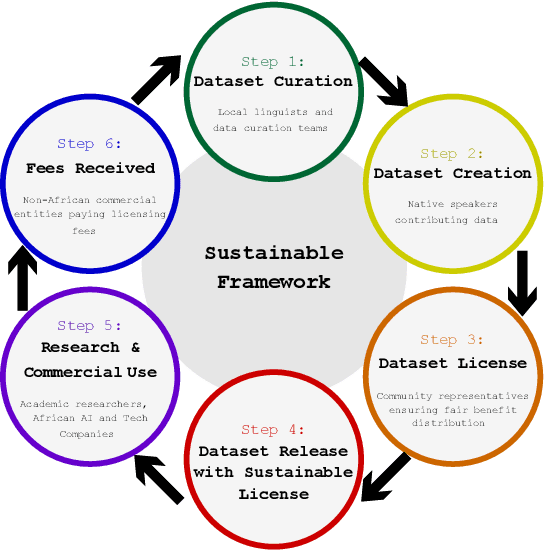

Abstract:This paper presents the Esethu Framework, a sustainable data curation framework specifically designed to empower local communities and ensure equitable benefit-sharing from their linguistic resources. This framework is supported by the Esethu license, a novel community-centric data license. As a proof of concept, we introduce the Vuk'uzenzele isiXhosa Speech Dataset (ViXSD), an open-source corpus developed under the Esethu Framework and License. The dataset, containing read speech from native isiXhosa speakers enriched with demographic and linguistic metadata, demonstrates how community-driven licensing and curation principles can bridge resource gaps in automatic speech recognition (ASR) for African languages while safeguarding the interests of data creators. We describe the framework guiding dataset development, outline the Esethu license provisions, present the methodology for ViXSD, and present ASR experiments validating ViXSD's usability in building and refining voice-driven applications for isiXhosa.
InkubaLM: A small language model for low-resource African languages
Sep 03, 2024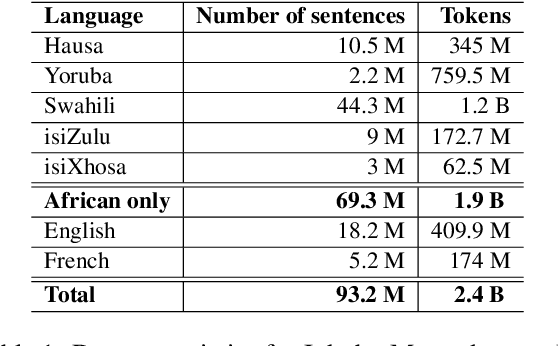
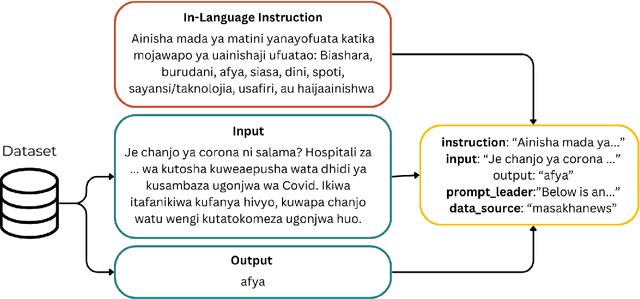
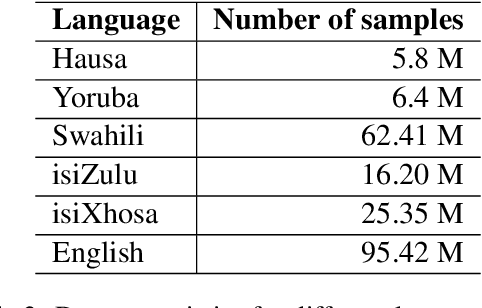
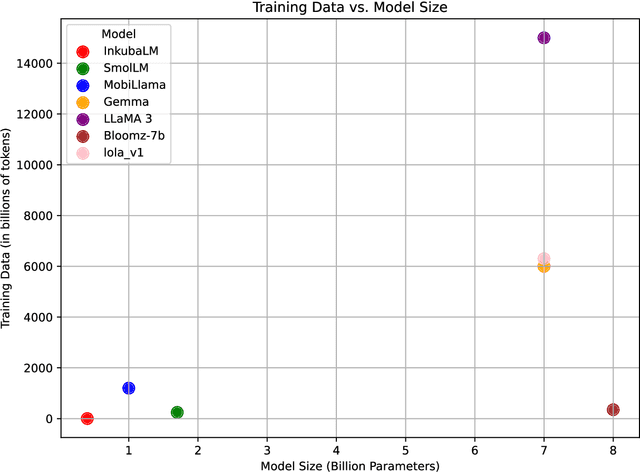
Abstract:High-resource language models often fall short in the African context, where there is a critical need for models that are efficient, accessible, and locally relevant, even amidst significant computing and data constraints. This paper introduces InkubaLM, a small language model with 0.4 billion parameters, which achieves performance comparable to models with significantly larger parameter counts and more extensive training data on tasks such as machine translation, question-answering, AfriMMLU, and the AfriXnli task. Notably, InkubaLM outperforms many larger models in sentiment analysis and demonstrates remarkable consistency across multiple languages. This work represents a pivotal advancement in challenging the conventional paradigm that effective language models must rely on substantial resources. Our model and datasets are publicly available at https://huggingface.co/lelapa to encourage research and development on low-resource languages.
Preparing the Vuk'uzenzele and ZA-gov-multilingual South African multilingual corpora
Mar 07, 2023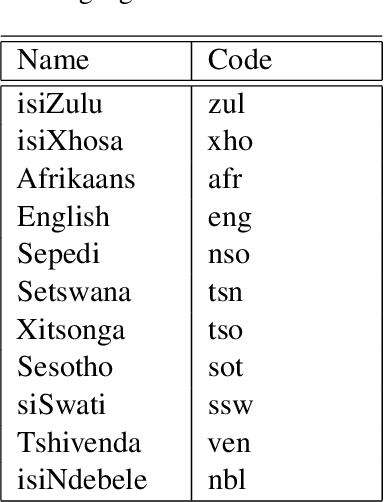
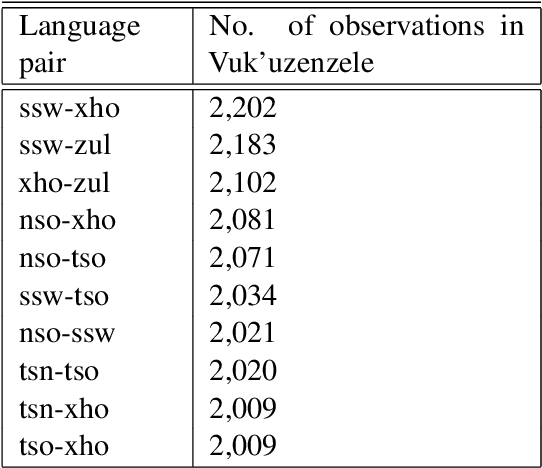
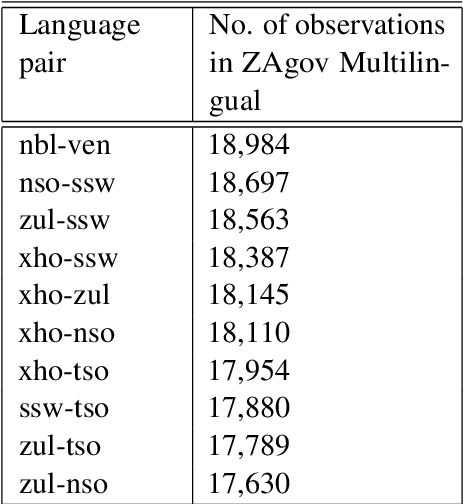
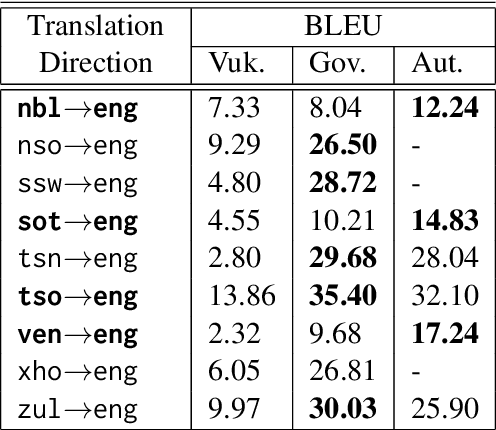
Abstract:This paper introduces two multilingual government themed corpora in various South African languages. The corpora were collected by gathering the South African Government newspaper (Vuk'uzenzele), as well as South African government speeches (ZA-gov-multilingual), that are translated into all 11 South African official languages. The corpora can be used for a myriad of downstream NLP tasks. The corpora were created to allow researchers to study the language used in South African government publications, with a focus on understanding how South African government officials communicate with their constituents. In this paper we highlight the process of gathering, cleaning and making available the corpora. We create parallel sentence corpora for Neural Machine Translation (NMT) tasks using Language-Agnostic Sentence Representations (LASER) embeddings. With these aligned sentences we then provide NMT benchmarks for 9 indigenous languages by fine-tuning a massively multilingual pre-trained language model. \end{abstra
 Add to Chrome
Add to Chrome Add to Firefox
Add to Firefox Add to Edge
Add to Edge